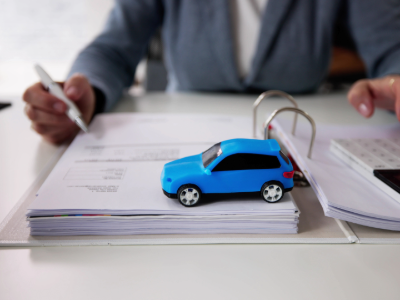Looking for a reliable and affordable used car under $15,000? This guide lists the top affordable used cars, known for their longevity, fuel efficiency, and safety, ensuring you get great value for your money.

In this blog post, we’ll guide you through understanding your car budget, calculating your monthly car payment, exploring factors affecting your car loan, adopting smart shopping strategies, considering alternative financing options, and preparing for future car expenses.

Creating a feasible car budget based on your financial situation and differentiating needs from wants helps prevent financial difficulties and guarantees your new vehicle aligns with your overall financial strategy. The following segments will guide you in assessing your financial situation and balancing needs against wants for a sustainable monthly budget.
Evaluating your financial situation is a pivotal step in identifying how much car you can afford without putting a strain on your finances. Start by examining your income, expenses, and existing debt, such as student loans, medical bills, or credit card balances, to determine an appropriate car loan payment that fits your budget. Financial experts generally recommend allocating no more than 20% of your monthly take-home pay to car expenses.
Keep in mind that maintenance and repair costs tend to increase as a car gets older, so using a car loan calculator that factors in these expenses can be helpful. Additionally, a car affordability calculator can assist you in determining the best car loan options for your budget.
In the context of car purchases, needs are fundamental components such as safety features, while wants are non-essential but desired items like luxury features. Balancing needs and wants is important for ensuring affordability and long-term satisfaction with your car purchase.
For instance, a new car might have all the latest technological features, but a slightly older model could provide similar performance at a lower cost. By prioritizing needs over wants, you can make a smart decision that takes both your budget and preferences into account.

With a clear comprehension of your financial standing and a prioritized list of your needs and wants, the next step is to compute your monthly car payment, considering the down payment. The following segments will introduce the 10-15% rule and explain how to modify your budget to include the total costs of car ownership, including monthly car payments.
The 10-15% rule suggests allocating 10-15% of your monthly take-home pay for your car payment, ensuring affordability. To calculate the recommended car payment based on this rule, simply multiply your monthly take-home pay by either 10% or 15%. This will provide a range that can help you select a car that won’t strain your finances.
Remember, sticking to this rule can help promote consistent savings and build a strong financial foundation.
Beyond your monthly car payment, you must consider the overall costs of car ownership, such as fuel and insurance costs, as well as maintenance expenses. Modifying your car budget to include these costs will shield you from unexpected financial stress in the future. Do your homework before you buy a car. Visit Fueleconomy.gov, a website maintained by the EPA, to look into fuel economy figures and annual fuel cost estimates for vehicles – both new and used.
Also, contact your insurance agent or company for accurate insurance quotes for the vehicle you’re interested in, as this will help you understand the insurance costs.
With a clearer picture of your car budget and monthly payment, you should also be aware of factors influencing your car loan. The following segments will explain how your credit score affects your loan and what factors to consider when choosing a loan duration.
Your credit score plays a significant role in determining the interest rates and monthly payments on your car loan. A higher credit score generally results in lower interest rates and better loan terms, while a lower credit score may lead to higher interest rates or difficulty obtaining a loan.
Maintaining a good credit score is crucial for securing favorable auto loan terms and minimizing the overall cost of your car purchase. It’s essential to research and compare various auto loan companies to find the best deal.
The duration of your car loan can have a considerable impact on your overall interest and monthly payments. Generally, longer loan terms lead to higher interest rates, while shorter loan terms feature lower interest rates. Balancing affordability and total cost when choosing a loan duration is essential.
Financial experts recommend selecting a loan term of 60 months or less to minimize the total amount of interest paid over time and reduce the risk of becoming upside-down on your loan.
Armed with a better understanding of your car budget and loan factors, it’s time to explore smart shopping strategies that can help you secure the best deal on your car purchase. In this section, we’ll discuss researching and comparing car models and effective negotiating tactics.
Before heading to a dealership, you should compare car models considering factors like:
Use reliable online platforms such as TrueDelta, TrueCar, and Edmunds to gather information and compare different car models.
Extensive research allows you to make a sensible decision and choose a car that meets your requirements and budget.
Negotiating can be a powerful tool to secure the best deal on your car purchase. Make sure to research the car’s value and market prices, and don’t hesitate to make a lower initial offer. Additionally, securing preapproved financing before heading to the dealership can give you a stronger negotiating position and help you obtain a better interest rate on your loan.
Remember, being well-prepared and confident in your negotiations can lead to substantial savings on the purchase price of your car, including potential reductions in sales tax.
If a new car purchase seems out of your budget, don’t fret – there are other financing options to consider. The following segments will investigate leasing and purchasing used cars as potential strategies to find the best fit for your budget and needs.
Leasing a car can be an attractive option for those who want to drive a new car without the commitment of a long-term loan. This financing option typically offers lower monthly payments and allows you to drive a new vehicle every couple of years. However, leasing also comes with mileage restrictions and doesn’t provide any long-term value to the lessee.
Carefully weigh the pros and cons of leasing before deciding if it’s the right choice for you.
Purchasing a used car can be a more affordable option for many car buyers. Used cars generally have lower upfront costs, lower credit requirements for financing, and lower insurance premiums. However, keep in mind that older cars may require more maintenance and repairs compared to new cars.
Thoroughly inspect any used car you’re considering and make sure to factor in potential maintenance expenses when determining your budget.
Lastly, preparing for future car expenses is key to a stress-free car ownership experience. The following segments will discuss setting up an emergency fund for repairs and saving for your next car.
Unexpected car repairs and maintenance costs can cause financial stress if you’re not prepared. Creating an emergency fund specifically designated for car repairs can help you manage these expenses without disrupting your budget. Financial experts typically recommend allocating between $500 and $1,000 for car repairs in an emergency fund.
By being proactive and setting aside funds for potential car repairs, you can avoid financial surprises and enjoy a stress-free car ownership experience.
Saving for your next car purchase is essential to ensure a smooth transition and continued affordability. As you enjoy your current car, start setting aside money in a dedicated savings account for your future car purchase.
By planning ahead and saving consistently, you’ll be better prepared to afford the car you want when the time comes to buy a new one.
In conclusion, smart car budget planning is crucial for a stress-free car buying experience. By understanding your car budget, calculating your monthly car payment, considering factors affecting your car loan, adopting smart shopping strategies, exploring alternative financing options, and preparing for future car expenses, you can confidently navigate the car buying process and enjoy a satisfying car ownership journey. So go ahead, take charge of your finances, and drive towards a brighter future!
As a general rule of thumb, never spend more than 35% of your gross annual income on a car, and keep your loan payment to no more than 10-15% of your monthly take-home pay. Additionally, total car expenses such as loan payments, insurance, maintenance, and gas should not exceed 20% of your monthly income.
The budget rule for a car recommends making a 20% down payment, returning the money to the lender in four years or fewer, and keeping total transportation costs under 10% of monthly income.
For reliable car model research and comparison, TrueDelta, TrueCar, and Edmunds are excellent platforms.
Leasing a car has the advantages of reduced monthly payments and access to new cars, but it also has restrictions on mileage and no value acquired from money paid towards the car.

Looking for a reliable and affordable used car under $15,000? This guide lists the top affordable used cars, known for their longevity, fuel efficiency, and safety, ensuring you get great value for your money.

Want to find out how to spot the best year-end car deals? This article will guide you through key strategies, including understanding sales cycles, leveraging manufacturer incentives, and perfect timing, ensuring you get a great deal.

Before stepping into a used car dealer, know the potential pitfalls. This guide will help you understand dealer tactics, hidden fees, and financing tricks, ensuring you make an informed purchase decision.

The ebb and flow of the car market can significantly sway car prices, and savvy shoppers can harness these cycles to their advantage. Let’s uncover the secret times of the year that can help you save money on your next car purchase, and find out the best time of year to buy a car.

Vehicle safety should always be considered when purchasing a new ride. Here are some tips on ensuring your vehicle is safe for the road.
